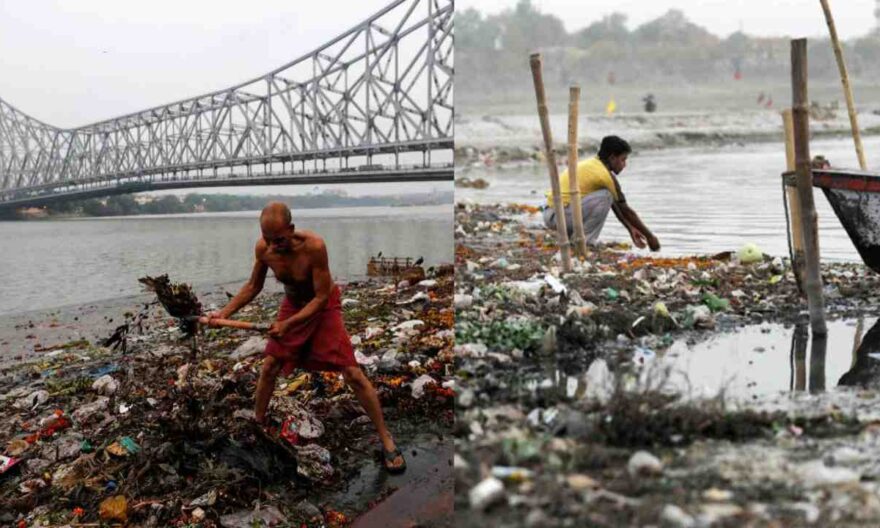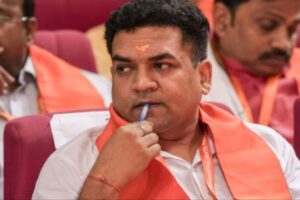
The National Green Tribunal (NGT) recently sought responses from authorities in response to a plea concerning pollution in the Hooghly River caused by eateries operating at Howrah Railway Station.
After reviewing the attached photographs accompanying the plea, a bench comprising judicial member Justice B Amit Sthalekar and expert member Dr. Arun Kumar Verma acknowledged the substantial environmental concerns raised.
The application seeks directives for immediate measures to address Ganga’s pollution due to untreated water discharge from eateries and hotels at Howrah Railway Station. It also requests that all drains discharging waste from these establishments be connected to the nearest sewage treatment plant (STP).
Furthermore, the plea alleges that these establishments operate without consent from the West Bengal Pollution Control Board (WBPCB). The board had instructed nine such establishments located on the riverbank to relocate to the eastern side of the railway station, a decision upheld by the Calcutta High Court against a writ petition.
The plea highlights the deplorable condition of the Railway Mail Service (RMS) backyard, with septic tanks directly draining into the Ganga. It also points out that the Hooghly Nadi Jalapath Paribahan Samabay Samity (HNJPSS), operated by the State Government, constructed toilets along the riverbank with waste flowing into the river. Moreover, it claims that despite the WBPCB’s order to shut down a hotel by December 2022, the hotel continues to operate. The presence of more illegal eateries near the ferry service point further adds to the area’s pollution.
After examining the attached photographs, the Tribunal issued notices to the Government of West Bengal, WBPCB, Howrah Municipal Corporation, National Mission for Clean Ganga, and Shyama Prasad Mukherjee Port Trust. The WBPCB was specifically directed to submit a comprehensive counter-affidavit listing all hotels or eateries operating in the area, specifying how many have STPs and comply with environmental regulations, including possessing the required operational consent.
Representation in the case included advocate Sibojyoti Chakraborty for the West Bengal government, advocate Amrita Pandey for Howrah Municipal Corporation, advocate Prithwish Basu for WBPCB, and advocate Ashok Prasad for the National Mission for Clean Ganga.




